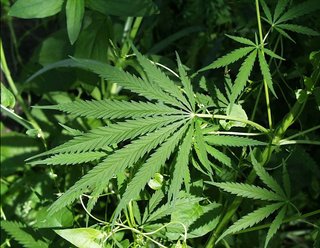In the US, cannabis, also referred to as marijuana, has generated a lot of legal and social discussion. States, localities, and the federal government all have an impact on its legal standing, which varies greatly across the nation. This article gives a thorough summary of the legal environment around cannabis in the United States, citing important statutes and actions and outlining the acceptance of the drug in each state.
Federal Laws and Acts
At the federal level, cannabis is classified as a Schedule I controlled substance under the Controlled Substances Act (CSA) of 1970. Cannabis is classified as having a high potential for misuse, no recognised medical benefit, and questionable safety when used under medical supervision. As such, it is against federal law to cultivate, distribute, or possess cannabis.
Some states have passed legislation allowing the use of cannabis for both medical and recreational purposes, notwithstanding the federal ban. State laws and federal regulations may now conflict in this complicated legal context. Important federal laws affecting the legalisation of cannabis include:
The fundamental federal law known as the Controlled Substances Act (1970) designates cannabis as a Schedule I substance.
The Rohrabacher-Farr Amendment (2014) forbids the Justice Department from interfering with state medicinal cannabis legislation' implementation with federal monies.
Farm Bill, or Agriculture Improvement Act
State Laws
State laws pertaining to cannabis vary greatly; some states maintain total prohibition, some only permit medical use, and yet others allow unrestricted recreational usage. Here is a thorough analysis of each state's legal position on cannabis as of 2024.
Recreational and Medical Use
Alaska: Legal for both recreational and medical use.
Arizona: Legal for both recreational and medical use.
California: Legal for both recreational and medical use.
Colorado: Legal for both recreational and medical use.
Connecticut: Legal for both recreational and medical use.
Illinois: Legal for both recreational and medical use.
Maine: Legal for both recreational and medical use.
Massachusetts: Legal for both recreational and medical use.
Michigan: Legal for both recreational and medical use.
Montana: Legal for both recreational and medical use.
Nevada: Legal for both recreational and medical use.
New Jersey: Legal for both recreational and medical use.
New Mexico: Legal for both recreational and medical use.
New York: Legal for both recreational and medical use.
Oregon: Legal for both recreational and medical use.
Rhode Island: Legal for both recreational and medical use.
Vermont: Legal for both recreational and medical use.
Virginia: Legal for both recreational and medical use.
Washington: Legal for both recreational and medical use.
Medical Use Only
Alabama: Legal for medical use.
Arkansas: Legal for medical use.
Delaware: Legal for medical use.
Florida: Legal for medical use.
Hawaii: Legal for medical use.
Louisiana: Legal for medical use.
Maryland: Legal for medical use.
Minnesota: Legal for medical use.
Missouri: Legal for medical use.
New Hampshire: Legal for medical use.
North Dakota: Legal for medical use.
Ohio: Legal for medical use.
Oklahoma: Legal for medical use.
Pennsylvania: Legal for medical use.
South Dakota: Legal for medical use.
Utah: Legal for medical use.
West Virginia: Legal for medical use.
CBD Only / Limited THC
Georgia: Limited to CBD oil with low THC.
Indiana: Limited to CBD oil with low THC.
Iowa: Limited to CBD oil with low THC.
Kansas: Limited to CBD oil with low THC.
Kentucky: Limited to CBD oil with low THC.
Mississippi: Limited to CBD oil with low THC.
North Carolina: Limited to CBD oil with low THC.
South Carolina: Limited to CBD oil with low THC.
Tennessee: Limited to CBD oil with low THC.
Texas: Limited to CBD oil with low THC.
Wisconsin: Limited to CBD oil with low THC.
Wyoming: Limited to CBD oil with low THC.
Prohibited
Idaho: Prohibited.
Nebraska: Prohibited.
Legal Things to Think About for Cannabis Companies
In the USA, managing a cannabis business requires adhering to numerous regulatory regulations. Here are some crucial things to remember:
Permits and Licences: Businesses that sell cannabis must have the necessary licences and permits from federal, state, and local governments. Application requirements might be strict and include zoning law compliance, business plans, and background checks.
State Law Compliance: When it comes to the manufacturing, distribution, and retail of cannabis, companies have to abide by state laws. This include adhering to specifications for testing, labelling, and packing.
Taxation: A number of federal, state, and local taxes apply to cannabis enterprises. Section 280E of the Internal Revenue Code, which forbids companies engaged in the trafficking of Schedule I or II narcotics from writing off regular business expenses, is enforced by the IRS and has a substantial negative influence on profitability.
Banking Difficulties: Because cannabis businesses are prohibited by federal law, many banks are hesitant to work with them. As a result, these enterprises must rely on cash transactions and alternative financial services.
Employment Law: Employers in the cannabis sector have to deal with a number of intricate labour rules, such as those pertaining to anti-discrimination, workplace safety, and employee benefits.
Marketing and Advertising: Cannabis companies are subject to severe regulations on the way they promote and advertise their goods. Regulations frequently forbid advertising that misleads about the effects of cannabis or targeting children.
Cannabis law in the United States is a complicated and dynamic field. State-level legalisation has advanced significantly, but federal prohibition is still a major obstacle. Companies in the cannabis sector have to follow strict federal laws and negotiate a confusing web of state regulations. The future of cannabis regulation in the United States is still up in the air and will be constantly monitored as more states move towards allowing both medical and recreational use and as public opinion continues to trend in favour of legalisation.
Anyone participating in the cannabis sector, from producers and distributors to merchants and consumers, must comprehend and abide by the many regulatory requirements. Being knowledgeable and flexible is essential to succeeding in this expanding sector because cannabis rules are continuously changing.

